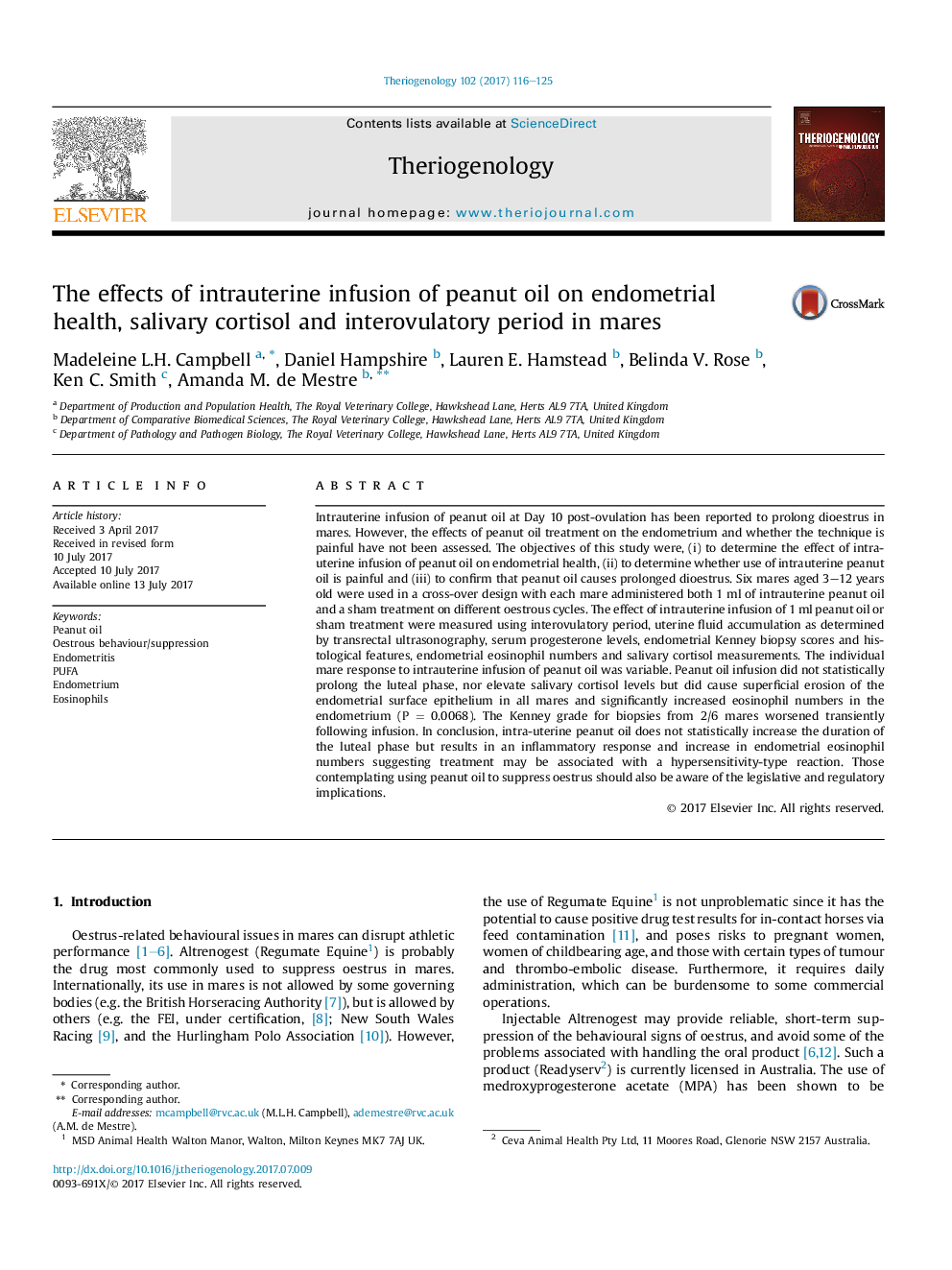| Article ID | Journal | Published Year | Pages | File Type |
|---|---|---|---|---|
| 5522943 | Theriogenology | 2017 | 10 Pages |
â¢The response to intrauterine infusion of peanut oil in dioestrus mares is variable.â¢Intrauterine peanut oil does not statistically prolong the luteal phase in mares.â¢Intrauterine peanut oil causes superficial erosion of endometrial surface epithelium.â¢Intrauterine peanut oil causes an increase in endometrial eosinophil numbers.â¢Rectal examination but not intrauterine peanut oil causes a rise in salivary cortisol.
Intrauterine infusion of peanut oil at Day 10 post-ovulation has been reported to prolong dioestrus in mares. However, the effects of peanut oil treatment on the endometrium and whether the technique is painful have not been assessed. The objectives of this study were, (i) to determine the effect of intrauterine infusion of peanut oil on endometrial health, (ii) to determine whether use of intrauterine peanut oil is painful and (iii) to confirm that peanut oil causes prolonged dioestrus. Six mares aged 3-12 years old were used in a cross-over design with each mare administered both 1Â ml of intrauterine peanut oil and a sham treatment on different oestrous cycles. The effect of intrauterine infusion of 1Â ml peanut oil or sham treatment were measured using interovulatory period, uterine fluid accumulation as determined by transrectal ultrasonography, serum progesterone levels, endometrial Kenney biopsy scores and histological features, endometrial eosinophil numbers and salivary cortisol measurements. The individual mare response to intrauterine infusion of peanut oil was variable. Peanut oil infusion did not statistically prolong the luteal phase, nor elevate salivary cortisol levels but did cause superficial erosion of the endometrial surface epithelium in all mares and significantly increased eosinophil numbers in the endometrium (PÂ =Â 0.0068). The Kenney grade for biopsies from 2/6 mares worsened transiently following infusion. In conclusion, intra-uterine peanut oil does not statistically increase the duration of the luteal phase but results in an inflammatory response and increase in endometrial eosinophil numbers suggesting treatment may be associated with a hypersensitivity-type reaction. Those contemplating using peanut oil to suppress oestrus should also be aware of the legislative and regulatory implications.
